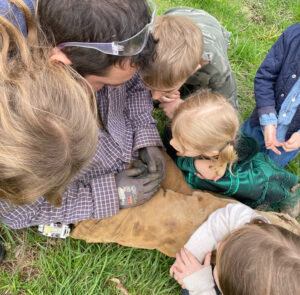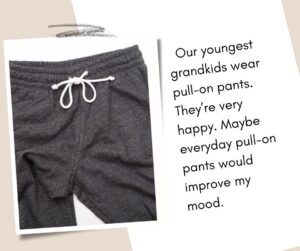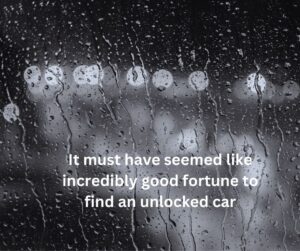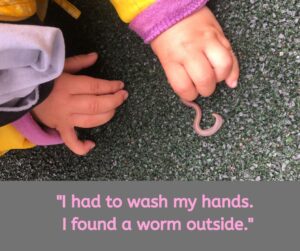We often homeschool three of our grands on Tuesdays while their mother works. We’re not sure if we are the ones “schooling” or the ones “getting schooled.”
We don’t do a lot of instruction per se. We’re thinking there may be some trust issues involved. Our primary job is to keep order, check their work, review assignments, quiz them on various subjects and provide food. We excel at that last one.
Sometimes our pupils turn the tables and have us take their quizzes to see how we do. I recently received a lackluster score on a quiz on stars and planets. I had the right answers in general but did not use proper textbook terminology.
Po-tay-to. Po-tot-o.
I demanded a retest but was told that’s not how the system works. I hope this doesn’t go on my permanent record.
Our real strength may be supplemental education: Driveway basketball, planting peas, onions and garlic, baking blueberry crumb coffeecake, bird identification and yard maintenance. We are not above taking advantage of free labor.
We also tend to do well in history, no doubt because we have lived great swaths of it. We put the “old” in Old School. They are all voracious readers, so we often discuss biographies and history, frequently taking unexpected sideroads.
The other day I asked if any of them knew why Lady Justice was blindfolded. I found a picture of Lady Justice on my phone. They passed it around, studied it, pondered it, then replied.
The oldest said, “I think it has something to do with race. She doesn’t want to see if someone is black or white, because we used to have slavery. Or she doesn’t want to see if someone is attractive or unattractive.”
Not bad, not bad at all.
The second one, the lively free-thinking, meandering one in the group, said, “She doesn’t want to see the inside of people’s business, or personal things people do because there are bigger things to take care of than being in someone else’s business. Keep your nose on your own face.”
Our future libertarian has spoken.
The youngest, thoughtful and pensive, softly said, “She doesn’t want to see all the annoying conflicts where wrong is bigger than right.”
I explained Lady Justice is blindfolded to represent the idea that justice should be unbiased and not influenced by a person’s appearance. This seemed like a good wrap to our school time, but somebody wanted to revisit whether Jupiter or Saturn has more moons.
We wouldn’t want to be schooling kids every day, but we enjoy our occasional roles proctoring and teaching, delving into decimals, fractions, demonstrative and possessive pronouns, the galaxies, and a smidge of political philosophy.
A resounding thud echoes in the driveway indicating we have now moved on to physical education.
Oh, the correct answer to which planet has more moons? Jupiter.












